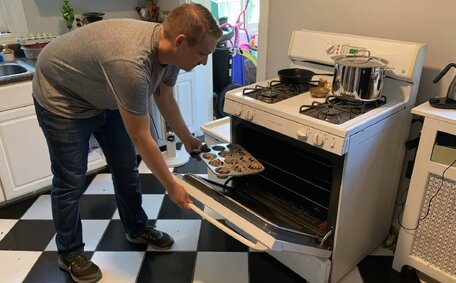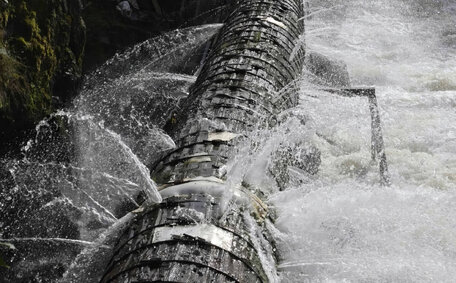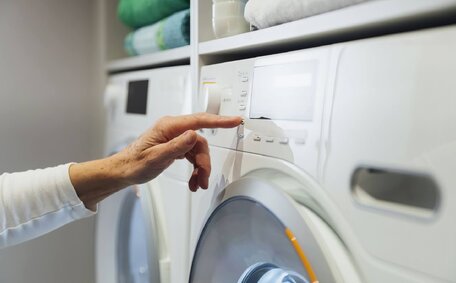Introduction to Plumbing System Maintenance
As a reputable plumbing company based in Erskine Park, Sydney, we understand the value of proactively maintaining your home plumbing system. Engaging in preventative plumbing maintenance is crucial to avoid common issues like leaky pipes, low water pressure, and clogged drains that can result in water damage or unhealthy conditions.
Implementing basic DIY plumbing tips, like clearing soap scum, alongside regular drain inspections can preserve your plumbing infrastructure and help detect problems early. We recommend basic plumbing tasks, such as inspecting plumbing pipes for leaks, controlling water pressure, clearing drains, and ensuring all shutoff valve mechanisms are operational.
Small habits, such as keeping fats from going down your drain, utilising drain strainers, cleaning aerators, and correctly flushing toilets have a significant impact. When faced with a complex plumbing job, it’s wise to call professional plumber, our experts offer swift and cost-effective solutions to Erskine Park homes and businesses.
By being proactive with your plumbing maintenance, you can often avoid costly repairs caused by destructive leaks or backups that could damage your property. We’re at your service to offer plumbing expertise to help establish a practical maintenance routine so you can avoid costly issues or manage any necessary repairs that may arise.
Regular Inspections and Preventative Care
To keep your plumbing system operating at its peak, Weekly inspections of your plumbing system are essential. Following these regular plumbing tasks, ranging from drains to comprehensive system care, can catch potential issues before they grow into serious matters.
Check for Leaks
Regularly check your home’s water fixtures, pipes, and connections for any leaks. Even minor leaks can waste substantial amounts of water and should be remedied promptly to prevent water damage. It’s crucial to remember to cut off the water supply valve prior to replacing worn components, secure connections, and certainly engage a professional for persistent leaks.
Monitor Water Pressure
Water pressure that is too high or low can point out your plumbing issues. Maintaining optimal water pressure in your home is important to avoid blocked drains. Contact a plumber if pressure seems abnormal.
Ensure all your household appliances are off before weekly water-use checks to avert mishaps.
Use Drain Strainers and Clean Drains
Employing garbage disposals and installing drain guards helps trap debris and prevent drain clogging. Maintaining your hot water system is also vital; occasionally flush hot water down drain to break down any grease or oil accumulation.
For effective cleaning, mix 200g of baking soda with 500ml of vinegar monthly, and flush with hot water.
Inspect Toilets
Regularly check your toilet for leaks and cracks, making sure only waste and toilet paper are flushed. Clean away calcium or limescale deposits with white vinegar or a mild chemical drain cleaner to improve operation and prevent clogs.
Clearing Clogs and Unblocking Drains
If you notice slow draining, first attempt to dislodge minor blockages with a plunger. Seal the plunger over the drain, then plunge up and down rapidly 10-15 times to dislodge debris. Flush with hot water after plunging to wash away loosened gunk.
To address tougher clogs, mix 225g of baking soda with 450ml of hot vinegar and apply to the drain.
Allow the mixture to work its magic for 5-10 minutes, followed by a thorough rinse with boiling water to safeguard your house plumbing.
Consistent drain maintenance efforts can help to identify any lurking blockages and keep your pipes clear, ensuring obstruction prevention. Use sink strainers and hair catchers to help keep your drains clear of minor blockages and debris.
Monitoring and Maintaining Water Pressure
Maintaining correct water pressure protects against leakages and ensures efficient operation of fixtures. Ideal water pressure is usually between 250-550 kPa (kilopascals).
Checking Your Water Pressure
Test your water pressure weekly by running water in a sink, shower, or tub without any other fixtures on. Use an affordable water pressure gauge on your hose bib or laundry sink to check the PSI. Consistent deviation from average pressure is one most telling signs of underlying plumbing concerns.
Causes of Improper Water Pressure
Low water pressure under 35 PSI may be due to worn washers allowing leaks, undersized pipes, heavy use during peak times, or issues with your water supply line or municipal line. High pressure over 80 PSI can be caused by faulty regulators, thermal expansion in your water heater, or upgrades by the municipality.
Solutions for Water Pressure Problems
In instances of low pressure, call professional assistance to inspect for leaks reducing water flow, cleanse aerators, or to install high-efficiency water fixtures. Always remember to turn off water supply before performing any adjustments or installations, such as pressure reducing valves to protect plumbing.
Installing whole house booster pumps can resolve low water pressure issues, potentially prolonging your system’s lifespan. Consider replacing washers or water heater expansion tanks as needed.
Replacing Old Pipes and Upgrading Fixtures
As time passes, your old home’s plumbing systems may lead to exposed pipes corroding due to hard water, loosening, and decreasing water pressure and flow. To keep your plumbing in top shape, it’s advisable that your home’s plumbing, as well as the sump pump, go through renovations approximately every 15 years to enrich water quality and forestall leaks, reinforcing drain efficiency.
Be mindful of ageing plumbing indicators like discoloured water, lessened flow, erratic faucets, and leaks. Upgrade from old galvanised steel or iron pipes to flexible PEX piping to enhance water pressure and prevent corrosion.
Replace faucets older than 15 years with low-flow models to save water and maintain household efficiency. Upgraded toilets with efficient flush systems visibly reduce water consumption. Upgrading bath/shower fixtures and sinks improves flow and reliability.
Replacing worn washers and seals prevents dripping taps from wasting large quantities of water. Our skilled plumbers can conduct thorough repairs and upgrades tailored to your specific needs and budget.
Understanding When Professional Help is Needed
While regular DIY drain cleaning and plumbing maintenance tips can prevent minor issues, there are times when a professional plumber is essential.
Gas Leaks
Evacuate immediately if you detect a gas smell or hear hissing from an appliance, and call the fire department. Follow our plumbing safety tips and never attempt to locate or stop a gas leak – such leaks pose serious fire or explosion risks that demand licensed professional intervention.
Total Drain Blockages
If plunging and using drain cleaners don’t resolve a total clog, consider using a drain snake or calling a plumber for safe blockage removal and pipe inspection. Repeated total clogs can indicate collapsed or damaged drain lines, potentially from tree roots intrusion.
Water Heater Problems
Sediment buildup or corrosion in your water heater may indicate blocked drains, potentially leading to efficiency loss and failure, necessitating professional servicing. Neglecting minor problems can create cracks and floods, leading to expensive damage to your system.
Low Water Pressure
Consistently low water pressure below 250 kPa, despite checked fixtures and aerators, suggests a main line leak that requires a professional pressure test and targeted repair.
If distressing plumbing issues arise, don’t hesitate to call a professional plumber from our team for assistance. Our team is available 24/7 to address any plumbing emergency, ensuring we can restore the safety and integrity of your plumbing system.
Conclusion and Next Steps for Readers
Combining regular DIY upkeep with yearly professional reviews is key to preserving your plumbing system. From routinely checking fixtures for leaks to monitoring water pressure, small weekly habits make a big difference.
Our maintenance guidelines will safeguard your plumbing system from issues like low water flow and blockages. We provide prompt, 24/7 emergency services as well as routine maintenance and upgrades.
Contact Erskine Park Plumbing by email or phone for plumbing maintenance or to schedule drain inspections. Let us help protect your property and ensure continuous water flow, as proactive measures can reduce future costs and hassle.






